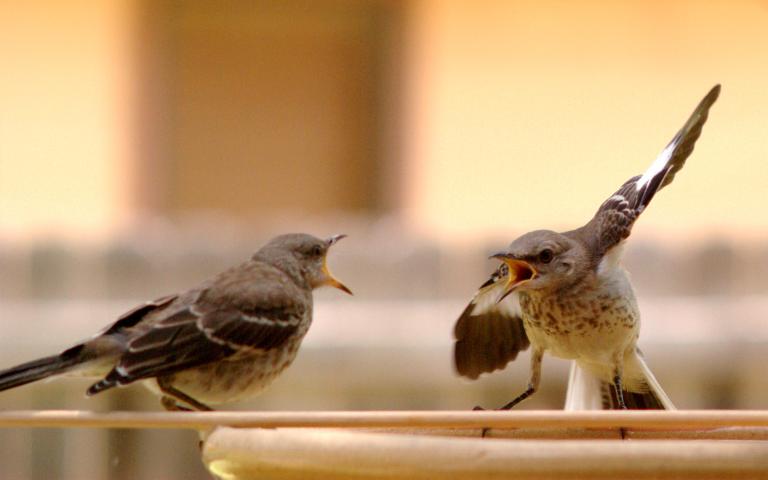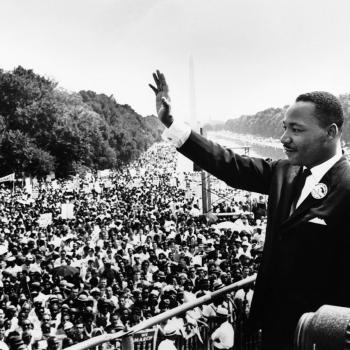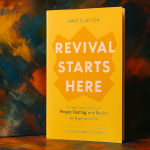
An Interview with Award-Winning Author Tom Krattenmaker.
How often do you find people asking others from across the ideological spectrum for help on how to be open-minded? How often do you find people on the other side responding graciously to the invitation and providing help? I have asked my friend and award-winning author Tom Krattenmaker, a self-professed “secular Jesus follower,” for help on the subject of cultivating open-mindedness without renouncing strong convictions. Mr. Krattenmaker is well-suited to address this subject. He is an award-winning USA TODAY columnist who addresses religion and public life in his various articles, and is the author of two books on Evangelical Christianity. His most recent book, Confessions of a Secular Jesus Follower: Finding Answers in Jesus for Those Who Don’t Believe (Convergent Books, 2016), was a second-place winner at the 2017 Religious News Association Awards. Krattenmaker also serves as the Communications Director at Yale Divinity School. A recent article on Krattenmaker and his book titled “Crossing the Great Divide: Can Red and Blue Talk to Each Other?” highlights certain features that he embodies that all people from across the ideological spectrum can learn from for public discourse in our pluralistic society. As a long-standing friend and dialogue partner going back to our days together in Portland, Oregon, I wish to delve deeper into aspects of this subject with Tom.
Paul Louis Metzger (PLM): Tom, thank you for your time. It is always an honor and delight to interact with you. To begin, what are a few key events or patterns that you believe illustrate the extreme partisan posturing in our society today?
Tom Krattenmaker (TK): The honor and delight are all mine, Paul. It’s good to be able to continue our conversations even though we aren’t meeting up in person at Milo’s like we used to when I lived in Portland. Of course, you’ll soon be coming to New Haven for a semester, which is very good news from my perspective.
For a prime example of extreme partisanship, look no farther than the White House. I think the president modeled this behavior in the way he framed his endorsement of Roy Moore in the Alabama Senate race. Moore was an extremely problematic candidate from top to bottom. But as Trump saw it, Moore’s sexual misconduct, extra-constitutional behavior as a state Supreme Court justice, his racist comments, his dubious invoking of God and faith, the serious doubts about his effectiveness, were all secondary. What really counted was that he wasn’t a liberal. That, above all, meant that people ought to vote for him. As Trump put it, “We don’t need another liberal in the Alabama Senate seat.”
This plays out on the left, too. I know liberals who vow never to associate with anyone who voted for Trump. You can imagine how many raised eyebrows and furrowed brows I got from people on “my side” when I wrote a column imagining what it would look like for liberals to apply the Jesus teaching and love our quote-unquote enemy, Donald Trump, and his supporters.
PLM: In your estimation, what are some of the factors and forces that have fostered this extreme partisan milieu?
TK: It’s a super complex phenomenon and it’s been building for decades. What stands out for me is that we have become too invested in politics. Data show that our political allegiances, more than religion or geography or our favorite football team, define who we are and who we are willing to associate with. The stakes are too high. It’s as if we expect politics to “save” us, whatever we mean by “saving.” Such misplaced hopes and expectations.
I want to be clear. Our divisions are real and serious; the issues are not trivial. But I think we’ve made a mistake in allowing the politics of our fellow citizen and prospective friends to completely overshadow the many other attributes and complexities all of us possess. I can think of innumerable examples of individuals I’ve known who hold political views that I find extremely off-putting—but who are gracious and friendly in our interactions about everyday stuff.
PLM: Your confessional stance of being a “secular Jesus follower” might strike some as an oxymoron. How might it be more of an opportunity of symbolic import to help us move beyond the stalemate? With this in mind, and in all seriousness, could you imagine someone writing a parallel book from a confessional stance, perhaps something like a “Christian Nietzsche follower”?
TK: As you know from our many conversations and from what I say in the book—particularly that first chapter, “Bad Company”—I’ve been a bad team player throughout my life, an inveterate boundary-transgressor. This tendency has been motivated and reinforced by what I see in the figure of Jesus, who, as you know, I greatly admire, and whose approach to life is the approach I try to follow myself. Jesus hung out with the quote-unquote wrong people all the time! This has played out in my interactions, as a secular person, with the Muslim community and the evangelical Christian community.
As you astutely note, this tendency of mine finds perhaps its ultimate expression in my declaring myself to be a “secular Jesus follower.” This is not allowed, right? But despite my lack of traditional God belief, I find the Jesus of the New Testament fascinating and compelling. I’m counting myself in with him (albeit in a secular way) regardless of whether it’s appropriate or not.
As you ask, is the reverse imaginable? Of course! I know Christians who engage with nonbelievers and open themselves to learning from these people. It doesn’t mean they are in any way becoming atheists. Given the way you engage across the divide, I realize you could elaborate on this quite expansively.
PLM: Tom, your work, and that of social psychologist Jonathan Haidt, have been influential in helping me engage people from across the ideological divide. You are thought-leaders who can help us move beyond group-think and confirmation bias. What would you suggest that conservatives and liberals do to cultivate an inquisitive rather than inquisitional posture with those from across the religious and political spectrum?
TK: The key is getting to know people as people, not as cardboard cut-outs. Actually, I think most of us intuitively get this and play it out it naturally in certain settings like our workplaces. Say a new employee joins the team at my office. Or say I’m chatting with a brand-new acquaintance at a conference. Would I immediately start subjecting this person to a hardline interrogation or harangue about their political stances? Of course not. It’s more of a gradual getting-to-know-you process.
With new co-workers, you chat about where they live, whether they have a spouse and kids, where they’ve worked previously, what interesting hobbies they have or what soccer team they root for. At least this has been my experience. Maybe you will end up talking about divisive issues around religion and politics at some point. That conversation is going to go a hell of a lot better if you’ve gotten to know each other and you’ve developed some affinity and affection.
I’ve had experiences at conferences where I’ve been in conversation with card-carrying members of the Christian far right, people who I knew to be my opposite politically and theologically speaking. How could there be any basis for a conversation? It’s really not that hard. What I end up doing in those situations is a simple act of showing curiosity, listening, and reflecting back what I’ve heard. People appreciate being listened to and understood, even if it’s a crazy liberal like me who’s doing the listening and understanding.
In my Secular Jesus Follower book, I summarize the concept by adapting a common and oft-derided evangelical aphorism—one you can see enacted in the behavior of Jesus, BTW—that says “hate the sin, love the sinner.” What I get from this is the imperative for tolerance-preaching liberals like me treating our so-called enemies as human beings even if we hate their racism or sexism. As I like to say, we can hate the hate but love the hater.
PLM: The article “Crossing the Great Divide” that I referenced above talks about the possibility of influencing people of other persuasions if we engage them in an open and charitable manner. While the article does not address this matter at length, does not openness also entail all of us from across the ideological spectrum being willing to hear arguments that might change and/or enrich and deepen our perspectives at points? To use Haidt’s language, we all cherish certain moral intuitions to varying degrees and need to account for others’ moral intuitions in cultivating public morality. I believe I need to ask myself in exchanges with people from across the spectrum, “What am I missing? Where are my blind spots?” This is not easy to do. How might you respond?
TK: You’re right. It’s not easy. I think many of us, present company included, feel anxiety when we contemplate the possibility that we might be wrong about something that we deeply believe, and that we regard as essential to our identity. As a result, it’s often hard to listen open-mindedly to perspectives at odds with our own.
Two thoughts: One, I we can lower the stakes. I can listen simply to understand why that person believes what he/she believes. It doesn’t have to shake my foundations. Two – and this is the more idealistic part of my answer, admittedly sort of intimidating – I presumably want to “know the truth,” right? So if I’ve been wrong about something all this time, I ought to want to discover that—and change it—as soon as possible.
PLM: Do you have much hope for our society moving beyond confirmation bias and extreme partisanship?
TK: I’m not optimistic it’s going to change in the immediate future. But I am hopeful that we will eventually transcend this moment in which we see only the worst in people on the other side. Not to put too much on the younger generations, but I think generational change can help. As I see it, today’s hyper-partisanship is partly the result of society undergoing dramatic changes during the lifetime of people my age (fifties) and older. It’s like the rug was pulled out from under us and the rules were changed in the middle of our lives. This has provoked very different responses that are at the center of our deepest conflicts. At the risk of over-generalizing, I would say that younger people have more of a natural affinity for the world of the 21st century and don’t have the same anxious responses to the foundational transformations that have been happening.
PLM: Tom, what current projects are you working on that will continue to help us move forward on this subject of crossing the ideological divide?
TK: I’m on the board of the Yale Humanist Community, where we recently adopted a new vision statement. It envisions a world in which people are “united by values rather than divided by beliefs.” So that’s an idea I’m trying to promote through my work with YHC, through my articles, and through the new book I’m attempting to launch. I’m trying to describe and advance the many ways in which religious and nonreligious people can work together for the good of our communities and world.
















